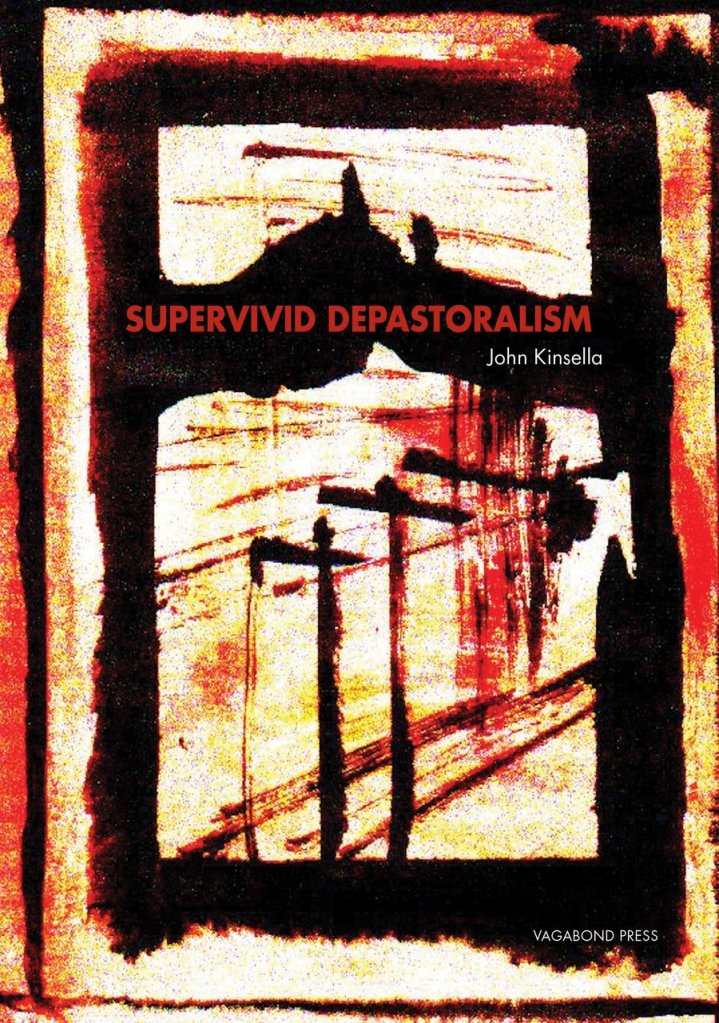married to this ground
“One swallow does not a summer make”
Upon opening the first few pages of Nicola Bowery’s third poetry collection, I was immediately touched by a twenty-year old memory of time spent in NSW. The bus tour out from Wollongong where I had gone for a conference to the University stopped for lunch somewhere at noon in the middle of an Australian summer forest.
as lichen
seduces the fallen log
(“untitled”)
And I recalled that day and that moment perfectly:
this land too straggly, ungracious
(“my space”)
and smelt again the bush, the eucalypts, the heat, the earth
under the rusty mantle of last year’s bracken
(“my space”)
One of the strengths of Bowery’s poetry is her felicitous use of imagery invoking our senses on almost every page:
A robin lands like a scarlet full-stop on the bowl’s edge
(“Bird bowl on a tree stump”)
I hear only the king-parrot’s
pinpoint note
pricking the silence
(“here and then”)
In the distance the weighty drone of a tractor
slashing paths
clickshots of stones and sticks
(“moments”)
only the bed knows
how each body writes on the other
delicate transcriptions in daylight and darkness
(“The bed”)
I pop the eggs against the roof of my mouth
with my eager spatula tongue
savouring the contrast of textures
(“Fine dining in Noosa”)
The first untitled poem in the collection bears in its concluding line the title of the collection:
so we are married to this ground
It is a beautiful, accomplished and stunning piece of work, almost a sonnet it contains only thirteen lines. Its successful use of repetition in each unrhymed couplet:
as lichen
builds through a skilful trellis of words to an utterly satisfying conclusion.
Two questions are important here. Firstly why is there in no other poem in this collection that comes even close in reaching nor equalling its excellence? Secondly in the structure of organizing the sequence of a poetry collection why is it placed first when the reader is going to look for and be disappointed that this superb single poem will not to be found again. As I was.
The collection is divided into three parts and the first section here is the strongest, Bowery’s poetic strengths are displayed best when she is dealing with insects, birds and animals. Her figurative language somewhat on show in this suite of poems of which “Huntsman spider” is amongst my favourites:
his toenails pale or dark
his demeanour comatose or watchful
for any of us who either fear, hate or love these creatures there is much to admire here.
Her series of poems on birds is good and her use of metaphor crisp and compelling. Bowery is a keen and sharp observer of nature and it shows in her verse.
Such a dapper acrobat!
His black purposive cap
the elongated curved beak like a surgical probe
the chestnut cravat low on the crisp white throat
(“Eastern spinebill”)
One poem in this early part of the book “On why there are more man poems on this particular shelf of companions in my writing space” is quite misplaced. It is a curious, contentious and quite confused piece and one that needs a good deal more thought and work.
In the second section, “a geography of marriage” the whole collection begins to not only lose its way but becomes quite bogged down. There are twenty-two poems here and each one is the same poem written over and over again. The relationship between Bowery and her husband deserves perhaps “Mug” and “The bed”, which are delightful but not more. If there is any relief in these poems, it is when she returns to the natural world:
It’s raining. Instantly the lichen sleeves
on the blackwood branches are swelling,
their pale mint-green luminescent in the gloom
(“Country life”)
and
corellas shout
the noisiest of birds
hardly credible how they bawl
megaphones in their stubby beaks
(“you’re shouting”)
The daily ritual of a marriage: work, arguments, anger, memories, disasters, love, porridge, absence, etcetera are all handled well enough and the poems are competent and agreeable but there are few surprises or fresh perspectives.
In the third part of this book “elsewhere” the poetry not only falters but fails to comply with the title and central theme of the book. My complaint is twofold: the unevenness in the quality of the poems and that these poems feel added on. They are occasional poems and don’t/can’t form any kind of satisfying sequence.
Bowery sets out in married to the ground to map a geography of terrain and relationships. To show the reader her world. That she loses her way or that she has not done enough work on more poems that bring this theme to life is a pity. I do not want to be taken “elsewhere” with poems that are tedious, lack direction and add nothing to the centrality of the book. The last three poems in the book: “watching rugby”, “dining out at Noosa” and “a Zen retreat” should not have been included. They are not poems. They are good ideas and in each case a first draft that need an enormous amount of further thought, work, and drafting, editing and polishing.
And thus I return to page 1 and read again these wonderful, delightful thirteen lines of verse and earnestly hope that Bowery has more poetry like this to come in the future. It is both an exemplar and an example of how good she can be. It is such a pity that nothing else represented here in this collection rises to its heights of excellence.
Nicola Bowery, married to this ground. North Hobart, Tasmania: Walleah Press, 2014. ISBN 9781877010460





